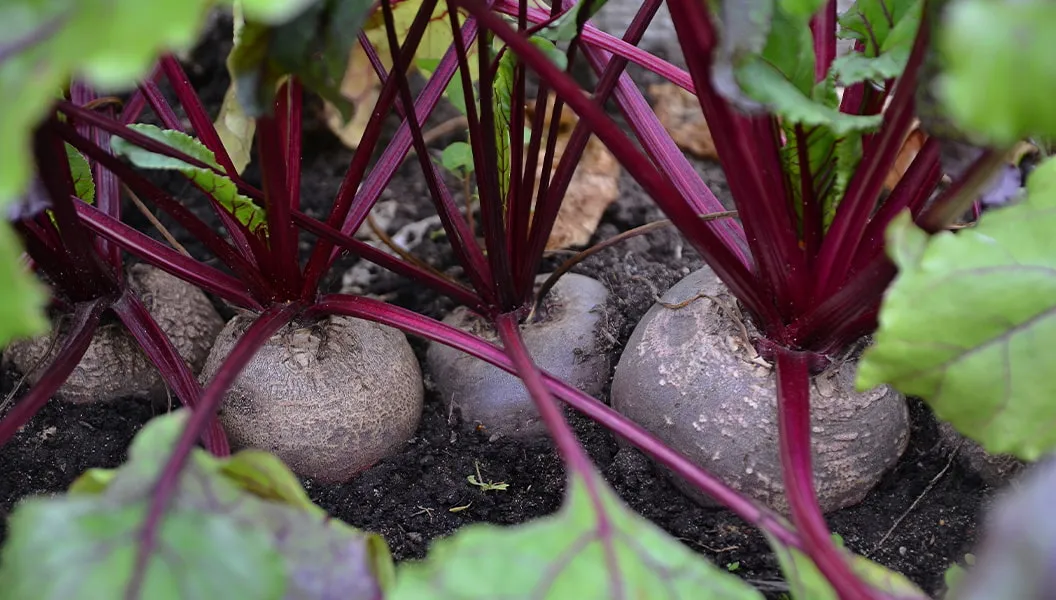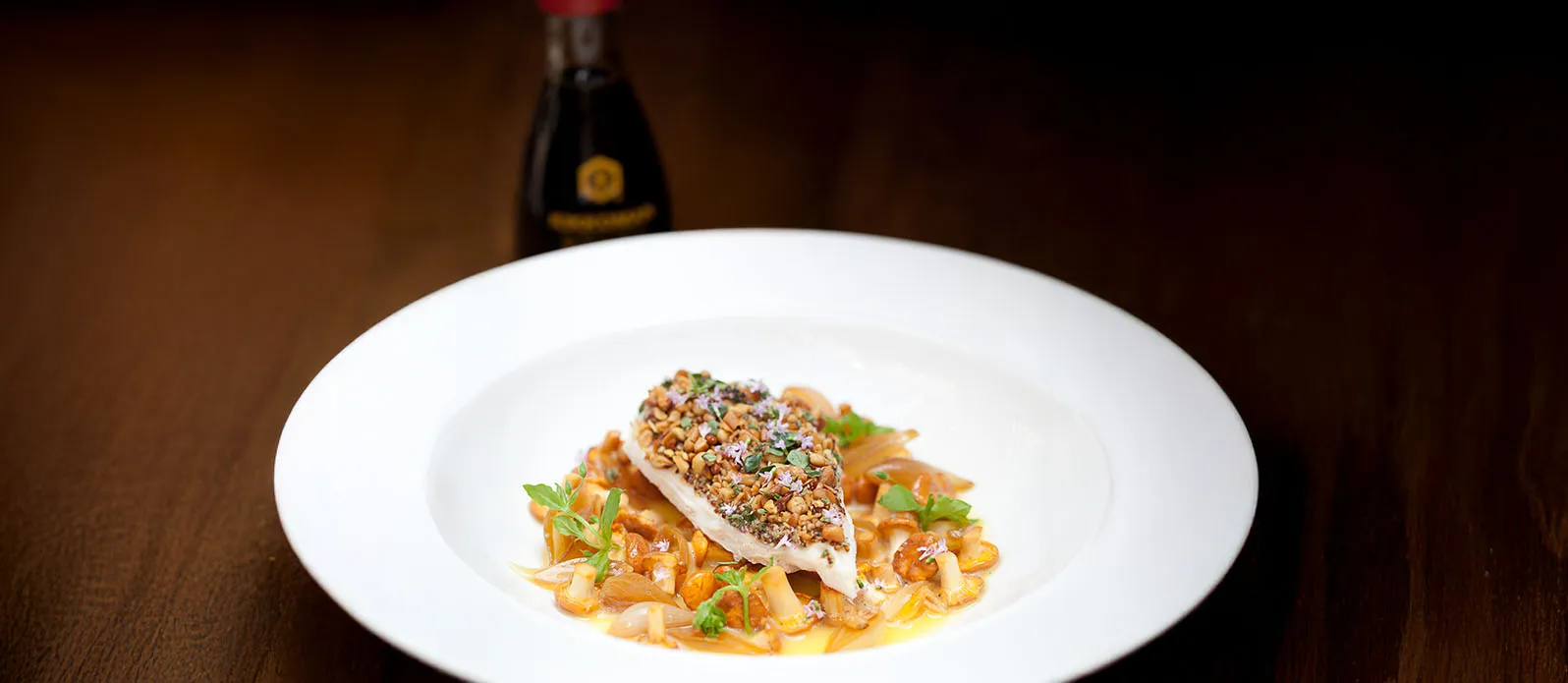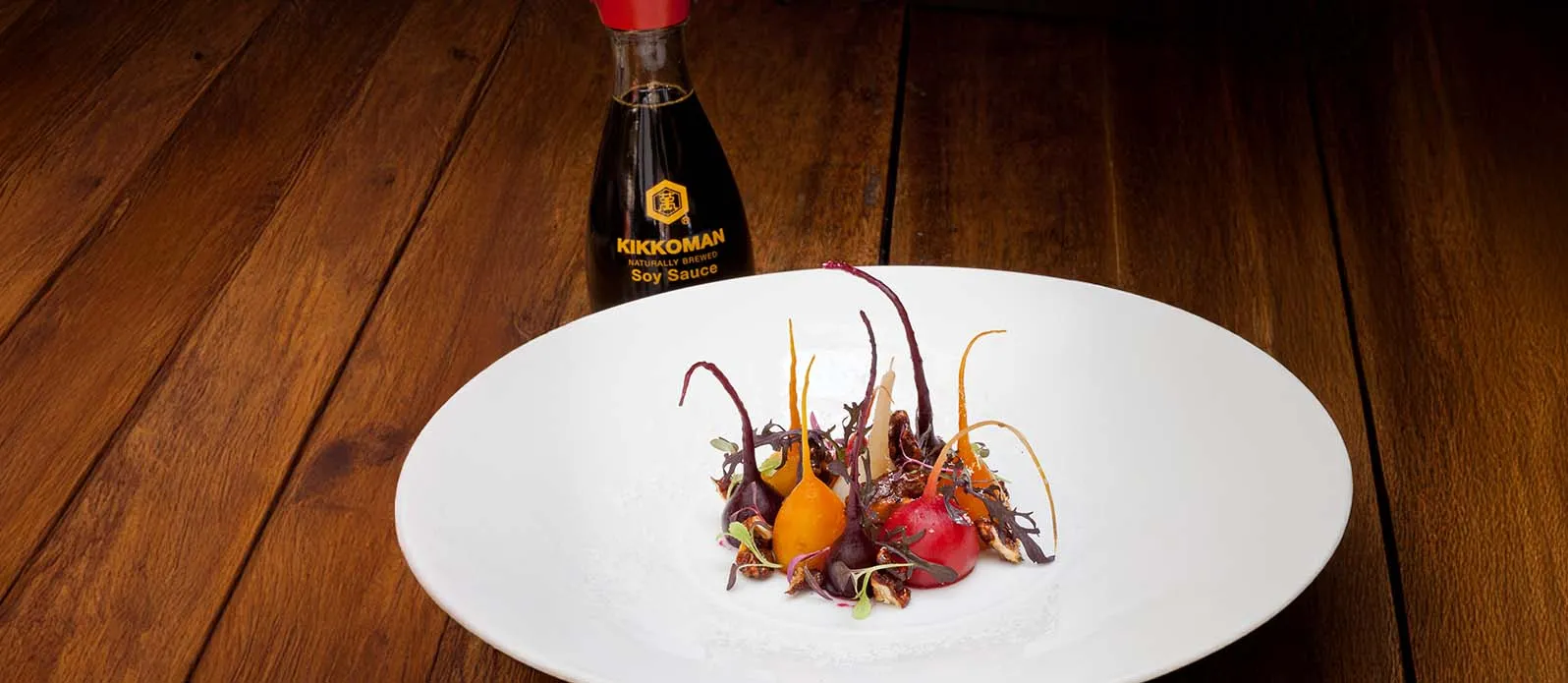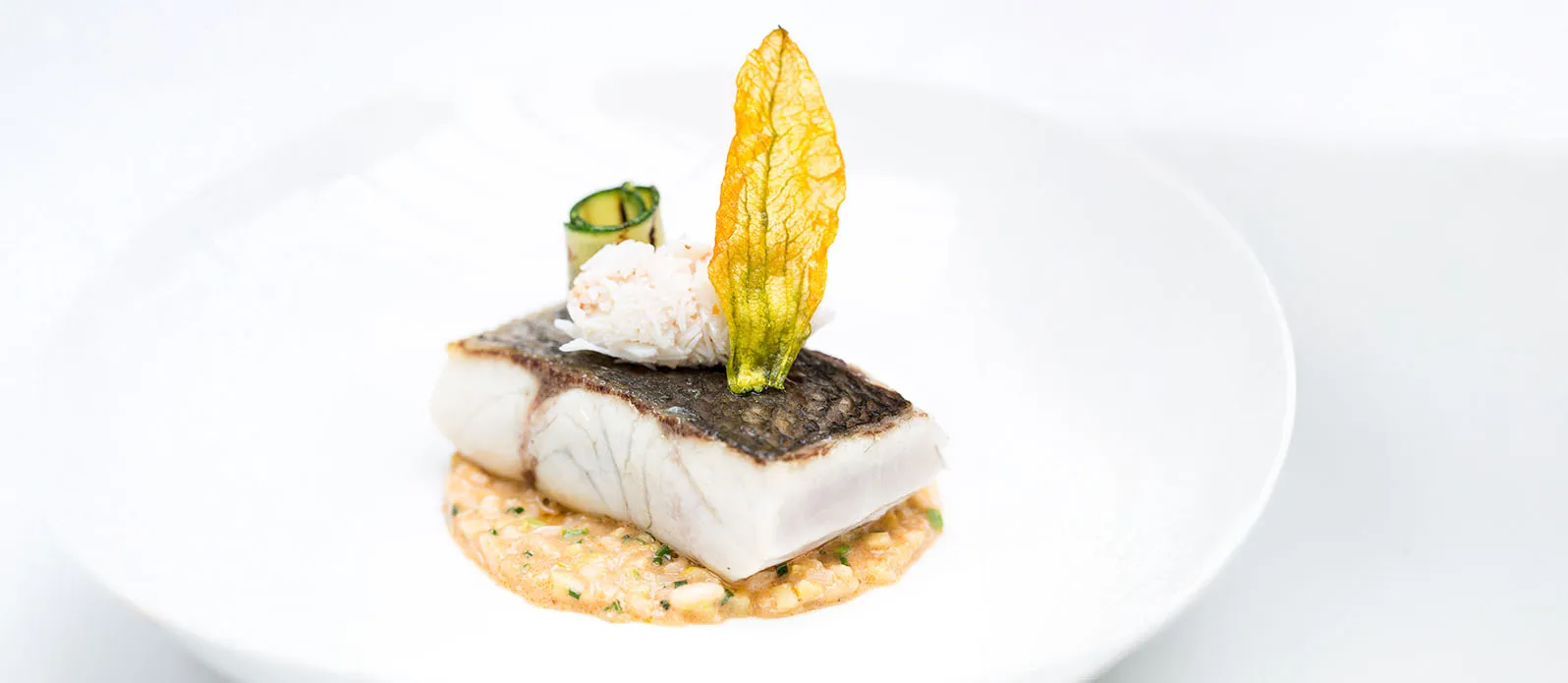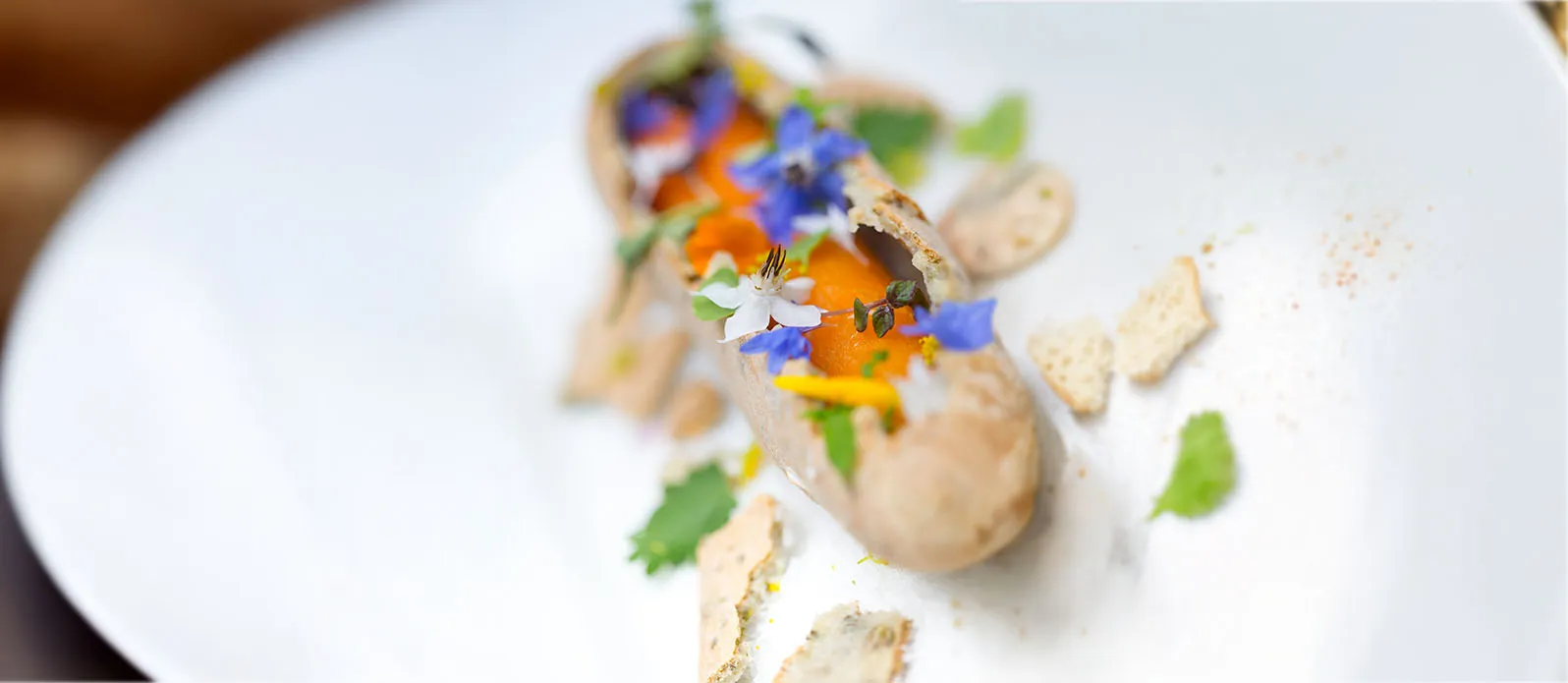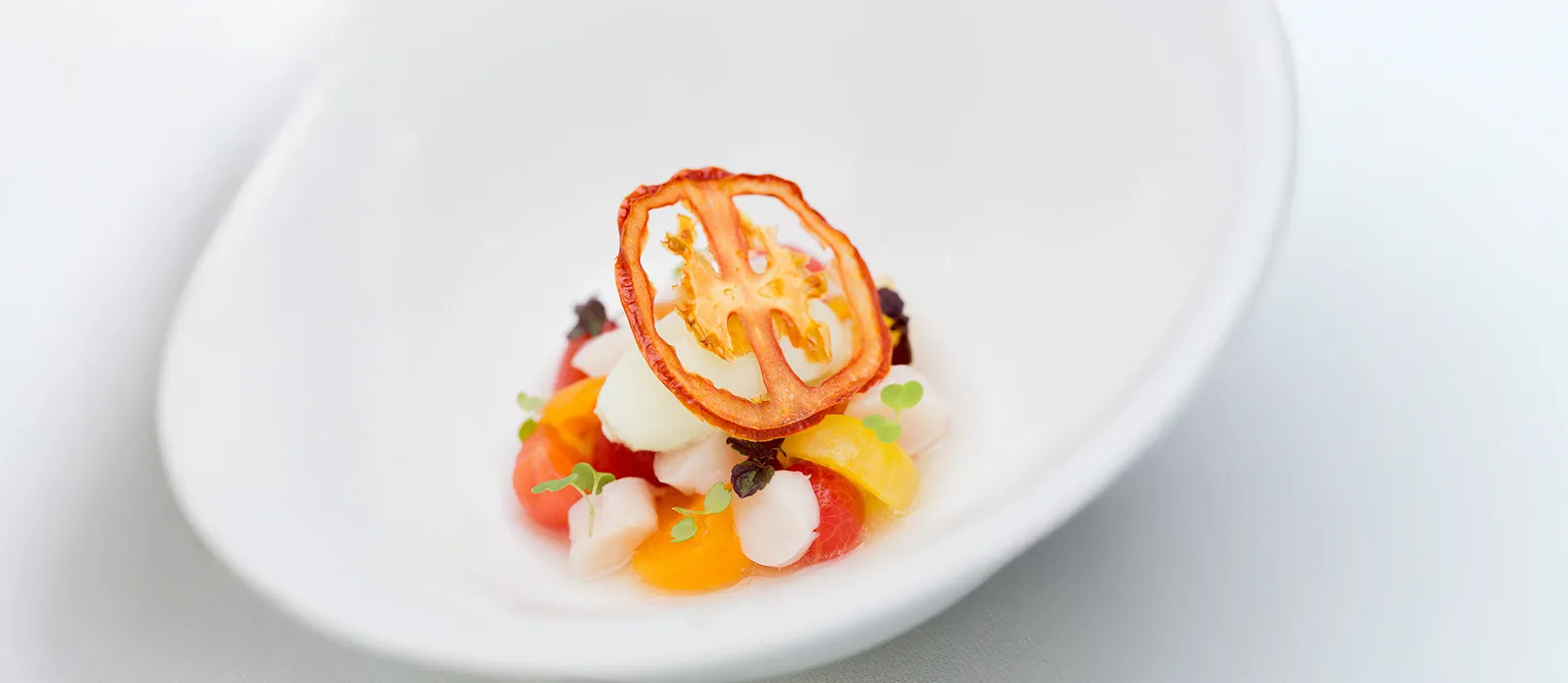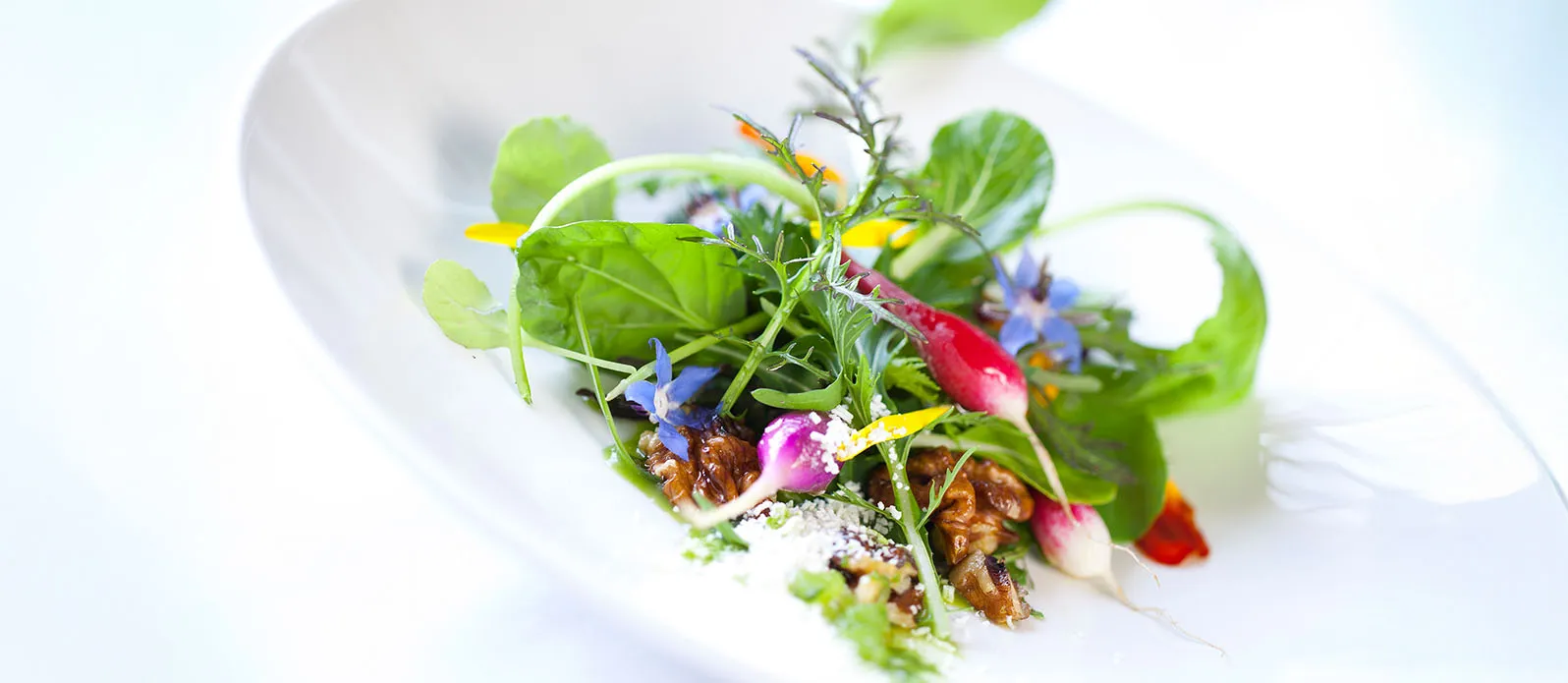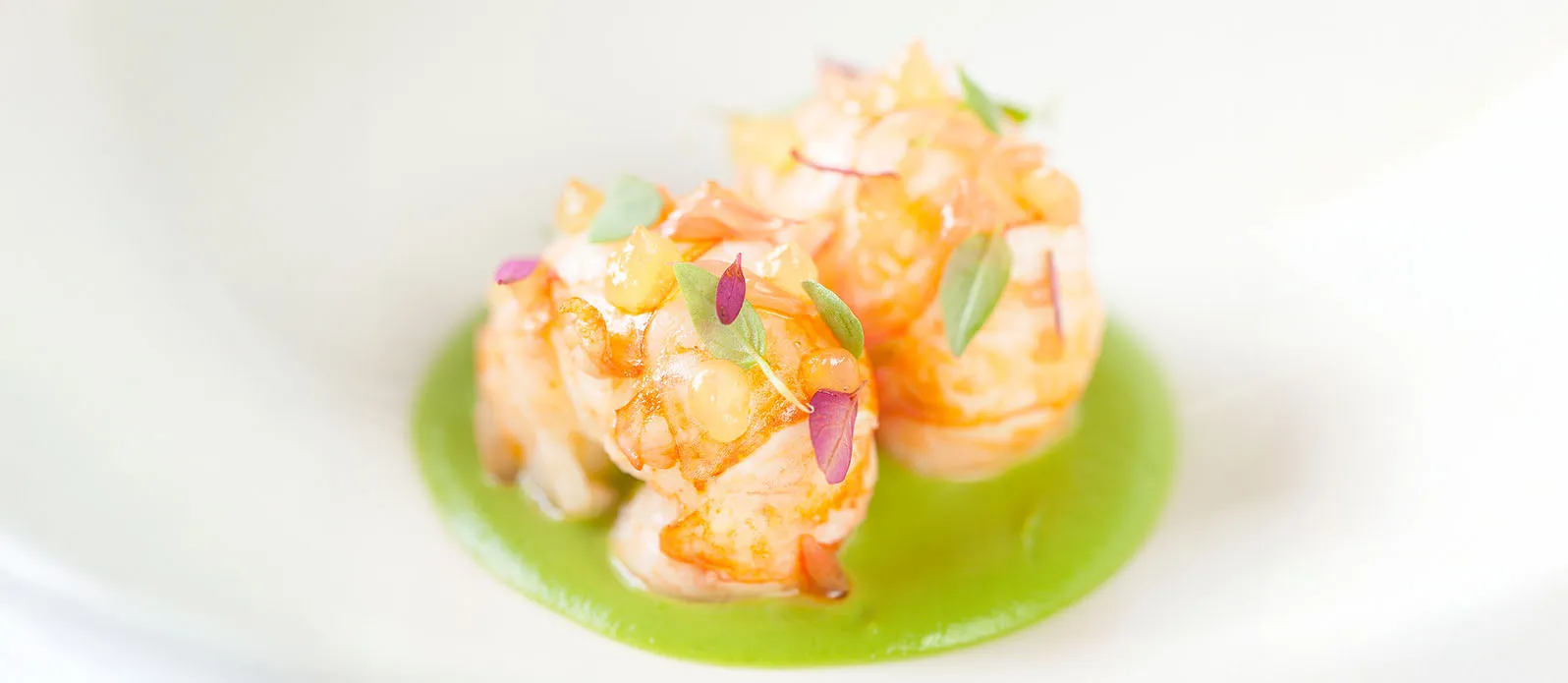Soybeans in focus: the versatile crop
24. March 2025

What exactly is soy?
Soybeans are a versatile legume and one of the world's oldest cultivated crops. They were first grown 5,000 years ago in Japan, Korea and China, and have been considered one of the five sacred grains alongside rice, wheat, barley and millet ever since.
Over the centuries, soy has become a globally recognised ingredient that is now indispensable in the modern catering industry and food production. The beans are particularly rich in proteins and healthy fatty acids, making them ideal for health-conscious cuisine.
The use of soybeans
Before soybeans end up in a wide variety of products and on our plates, they start out on extensive fields where they are cultivated with great care. There are generally two main uses for this valuable plant.
Soy cultivation: two main uses
The majority of soybean production is used in factory farming. Here, the beans are processed into soybean meal, which is used as feed for pigs and poultry.
Only a small proportion, around 2 to 6% of the crop, is used for actual food production, i.e. for products that contain soy.
From tofu and soy sauce to meat substitutes, soybeans are highly versatile in the kitchen. Interestingly, soy is also used in medicine and the pharmaceutical industry, where it serves as a raw material for ointments, and dietary and bath products.
Visit our product overview page for inspiration on using soy professionally in the catering industry.
Soy products for commercial kitchens
Soy has definitely earned its place in professional kitchens. Here's an overview of the most important products and their uses:
Soy sauce
Soy sauce is an essential element of Asian cuisine. Depending on the variety, soy sauces go well with soups, soba noodles, sushi and savoury dishes, giving them a particularly rich umami flavour. It is also increasingly recognised in the Western world as an all-purpose seasoning, used in all kinds of recipes.
Tofu
To make tofu, soybeans are soaked and pureed, after which all fibrous components are strained out. The remaining liquid is boiled and coagulated with a curdling agent that causes the protein to solidify. Squeezing the water out of these protein components results in tofu.
Across Europe, tofu is available in various forms, including smoked, silken and tofu enhanced with additional ingredients like nuts or herbs. Silken tofu is ideal for desserts such as vegan chocolate mousse, while smoked tofu shines in savoury dishes.

Soy flour
Soy flour is obtained by removing the skins and roasting the beans. It's ideal as an egg substitute: one tablespoon of soy flour mixed with two tablespoons of water replaces one egg, making it perfect for vegan baked goods such as cakes, muffins and biscuits.
Soy drinks
Soy drinks are a popular alternative to cow's milk. They can be used in a variety of ways, including in sweet dishes such as rice pudding and as a base for smoothies and muesli.
Soy as a snack: edamame
Edamame beans are young soybeans harvested while still unripe and therefore green. They need to be cooked thoroughly before eating and are usually roasted and salted afterwards. They can then be eaten much like peanuts and have a nutty, slightly sweet taste.
Other soybean products
- Yuba: the skin that forms when soy drinks are heated is a delicacy that can be deep-fried or fried.
- Soy cream: ideal for creamy sauces and desserts.
- Soy yoghurt: a dairy-free alternative that's also easy to make at home.
- Soy quark alternatives: ideal as a bread spread or for desserts.
- Soy oil and margarine: versatile and often enriched with essential vitamins.
- Tempeh: an Indonesian speciality that's ideal as a side dish, salad ingredient or sandwich filling.
- Miso: a fermented soy paste used as a soup base or seasoning.
Are soybeans healthy?
Absolutely! With a protein content of around 35% and plenty of unsaturated fats, soybeans are a valuable ingredient for a balanced diet. They also provide vitamin E, potassium, calcium and magnesium—ideal building blocks for your daily meal plan. They also contain dietary fibre, which aids digestion, as well as secondary plant compounds like isoflavones, which have antioxidant properties and may positively influence hormonal balance.
A health perspective: benefits and risks
Soybeans are often praised for their health benefits, but they're not suitable for everyone. Some people are allergic to soy proteins. These allergies can cause symptoms like rashes, stomach discomfort, or, in severe cases, breathing difficulties. So care should be taken when introducing soy into new recipes or menus.
Nonetheless, for most people, the benefits outweigh the risks. Studies suggest that moderate soy consumption may reduce the risk of cardiovascular disease and support bone health. Soy is an excellent source of essential amino acids, especially in vegan and vegetarian diets, which are often otherwise obtained from animal products.
Preparing soybeans
Dried soybeans must be cooked before use. After soaking for several hours, they should be simmered in a large saucepan over a low heat for about an hour. Salt should only be added after cooking to preserve their texture. Cooked soybeans are great in soups, stews and salads.
Storing soy products
- Dry beans: store in airtight containers in a cool, dark place. They keep for about a year or two.
- Fresh produce: use quickly or freeze.
- Tofu and tempeh: freezing extends their shelf life and preserves the flavour.
Soybeans: the all-rounder for culinary professionals
Thanks to their versatility and health benefits, soybeans are an indispensable ingredient in modern gastronomy. From vegan dishes and Asian specialities to creative desserts, soy unlocks a world of flavours. Experiment with our premium products and impress your guests with innovative creations!


